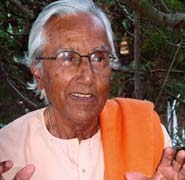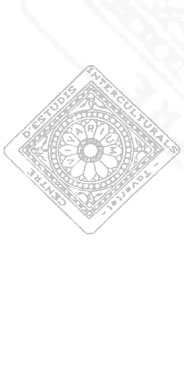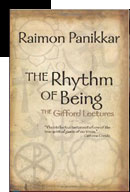

official site

THE RHYTHM OF BEING
The Gifford Lectures
Based on the prestigious Gifford Lecture, Panikkar delivered twenty years ago under the title “Trinity and Atheism The Dwelling of the Divine in the Contemporary World.”, The Rhythm of Being is considered his masterwork.in the philosofical field.
Panikkar continued to work on this book for all these years, running through a succession of assistants and editors, apparently conscious that this work would sum up the totality of what he had been striving for throughout his life. Many of his friends wondered whether it would ever appear in his lifetime.
The basic theme of the The Rhythm of Being is the triadic or Trinitarian structure of Reality, comprising the Divine, the Human, and the Cosmic in thoroughgoing relationship—what he otherwise liked to call the “cosmotheandric experience.” He believed this perspective offered a point of unity between Christianity, Hinduism, and Buddhism.
In the end, however, he acknowledged the limitations in reaching any grand synthesis. Panikkar had intended a final chapter that would address the final eschatological consummation of all reality. Perhaps it was this chapter, more than anything else, that delayed the publication of his book for two decades. In the end he chose to omit the chapter altogether. Instead, he inserted a moving one-page epilogue in which he noted:
“I must admit that all ultimate questions cannot have final answers, but that we can at least be aware of the problem we have presented. I have touched the limits of my understanding and must stop here. The Tree of Knowledge again and again tempts one at the cost of neglecting the more important tree, the Tree of Life. How can human thinking grasp the destiny of life itself, when we are not its owners? This is my humble conclusion to much presumptuous research. It has taken me twenty years to admit this, and I apologize.”
Now he knows the destiny of life, no longer through a glass darkly, but face to face.
(from Orbis Book Publisher’s letter)
